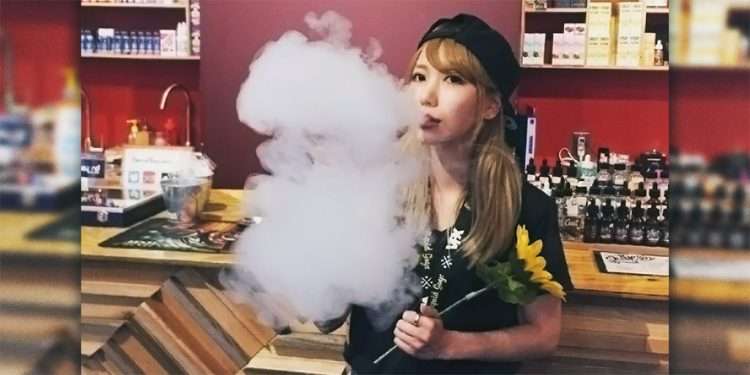
How many ways can you Say Yes in Japanese?
You know know 17 ways to say Yes! in Japanese. There are many ways you can use the word yes in Japanese, especially if you consider who you are talking to or what the situation is.
Is it considered impolite to say yes in Japan?
In Japan, it’s considered impolite to use casual languagewith people who are older than you or have more seniority at work or school. So let’s look at some polite ways to say yesin Japanese.
What are some situational phrases that mean yes in Japanese?
There are a few situation-specific phrases that mean yesin Japanese. Many are reserved for when you’re at work or customer service situations. Here are some situational words for yesthat you might hear in Japanese. 15. かしこまりました(Kashikomarimashita)- Certainly
Does the Japanese word “okay” sound like “Okay?
Yes, you’re right; it sounds like “okay.” Indeed. This literally comes from the English word okay. That’s why it’s written in Katakana, the Japanese alphabet used for foreign words.

How do you say vape in Japanese?
The noun 電子タバコ literally means electronic cigarette and the verb 吸う has many meanings aside (not just smoking), it can also mean to inhale, breathe, suck etc.
How do you say yes in Japanese informal?
'Yes' in Japanese is はい (hai), but you often hear わかりました (wakarimashita) which literally means 'I understand' or 'OK, I agree. ' However, in informal situations, it is also acceptable to say OK です (it's OK) and, particularly amongst friends, you can utter ええ (ee).
What is se no in Japanese?
The phrase that you are referring to as "say no" is "seeno" or せえの in Japanese. It means, "One, two, three GO!" or "One, two..." or "One two three four." all depending on which context it is being used in. It is said when someone is being prompted to start to do something.
Are there Vapes in Japan?
Vape liquids with nicotine are banned in Japan and you can't legally buy it in local stores or e-shops. It is a silly law pushed by the tobacco lobby, that infringes vapers' rights. Get juice for your atomizer from us, it's legal, cheaper and 100% safe shipping.
What is Nani desu ka?
nani desu ka – 何ですか (なにですか) : a polite expression meaning 'what? ' in Japanese.
What is Shirimasen?
Therefore, 知りません(shirimasen) means you have no knowledge of something and 分かりません(wakarimasen) means you don't understand something. But, 分かりません(wakarimasen) also means “you can't find the answer” or “you can't give an answer” and it doesn't necessarily mean you don't have knowledge.
What does Senore mean?
Used as a form of polite address for a man in a Spanish-speaking area. 2. A Spanish or Spanish-speaking man. [Spanish, from Old Spanish sennor, from Vulgar Latin *senior, lord, from Latin, senior; see senior.]
Is there a yes kanji?
はい hai: yes (polite)
What does Yosh mean in Japanese?
OK, I'm going for it“Yosh. This phrase means something like, “OK, I'm going for it,” or “I'll do my best.” A Japanese would say “Ganbarimasu” before taking a test or leaving the house for a job interview.
Is vape illegal in Japan?
In Japan, nicotine vaping products are illegal, but heated tobacco products like IQOS are completely legal and widely used. Some countries have outright bans on use and sales, others just ban sales, and some ban only nicotine-containing products.
Is vape popular in Japan?
Abstract: Electronic cigarette (e-cigarette) use has become increasingly widespread throughout the world, including in Japan. However, little is known about how e-cigarettes are used in Japan, a country with heavy restrictions on nicotine-containing e-liquids and/or vaping products.
Is it illegal to smoke in Japan?
At the national level, smoking is not restricted or prohibited by law in indoor public places, workplaces, or on public transport, although in practice many such places restrict or ban smoking.
How to say "yes" in Japanese?
1) はい Yes. This is the literal translation and most direct way of saying yes in Japanese. It is commonly used in formal settings. Also, Japanese people like to hear this word to know that you understand or are listening to what they are saying. So, if you’re listening to someone, just say “hai” a few times.
What does "keigo" mean in Japanese?
It’s a “Keigo” way of saying yes in Japanese. Keigo is a polite level of Japanese speech. You use this for your boss or someone superior to you at work. No. 4 can be used for colleagues or positions at the same or junior to you, but you can reserve “かしこまりました” for higher ranked individuals. 10) わたしができます。.
What does "Iiyo" mean?
Iiyo. This is often used in situations where you give permission or approval to something that was asked of you. Be careful though, by extending the “Ii-” part and saying it in a slightly stronger way, “いいよ” can also sound aggressive and mean “No need”.
Sou desu
In a conversation, sou desu is a phrase used to say that we agree with someone (again, another aizuchi ). While this is applicable in all social situations, sou desu has different varieties to suit other levels of formality.
Ii desu
The word ii (いい) means ‘good’. Saying ii desu in a conversation would mean that you agree with the other person’s ideas.
Daijoubu desu
Daijoubu desu is a very useful phrase in many different situations! When you use this to say yes in Japanese, it’s usually said as a response to a question asking if something is okay to do.
Zehi
If you sincerely or enthusiastically agree with someone, zehi conveys those strong emotions! This word can be used in both formal and informal situations.
Shouchi shimashita
When saying yes at work, you can use shouchi shimashita after acknowledging something your boss said. When using this, it is expected that you know or learned something new.
Ryoukai desu
This phrase is used like ‘Okay’ or ‘Roger that’ in two-way radio communication, like in the military forces. In a normal work setting, this can also be used to indicate that you will follow a boss’ orders.
Yoroshiku onegaishimasu
In agreeing to make a request (for someone’s help or services), yoroshiku onegaishimasu works well as a counterpart for ‘yes, please ‘ in English.
